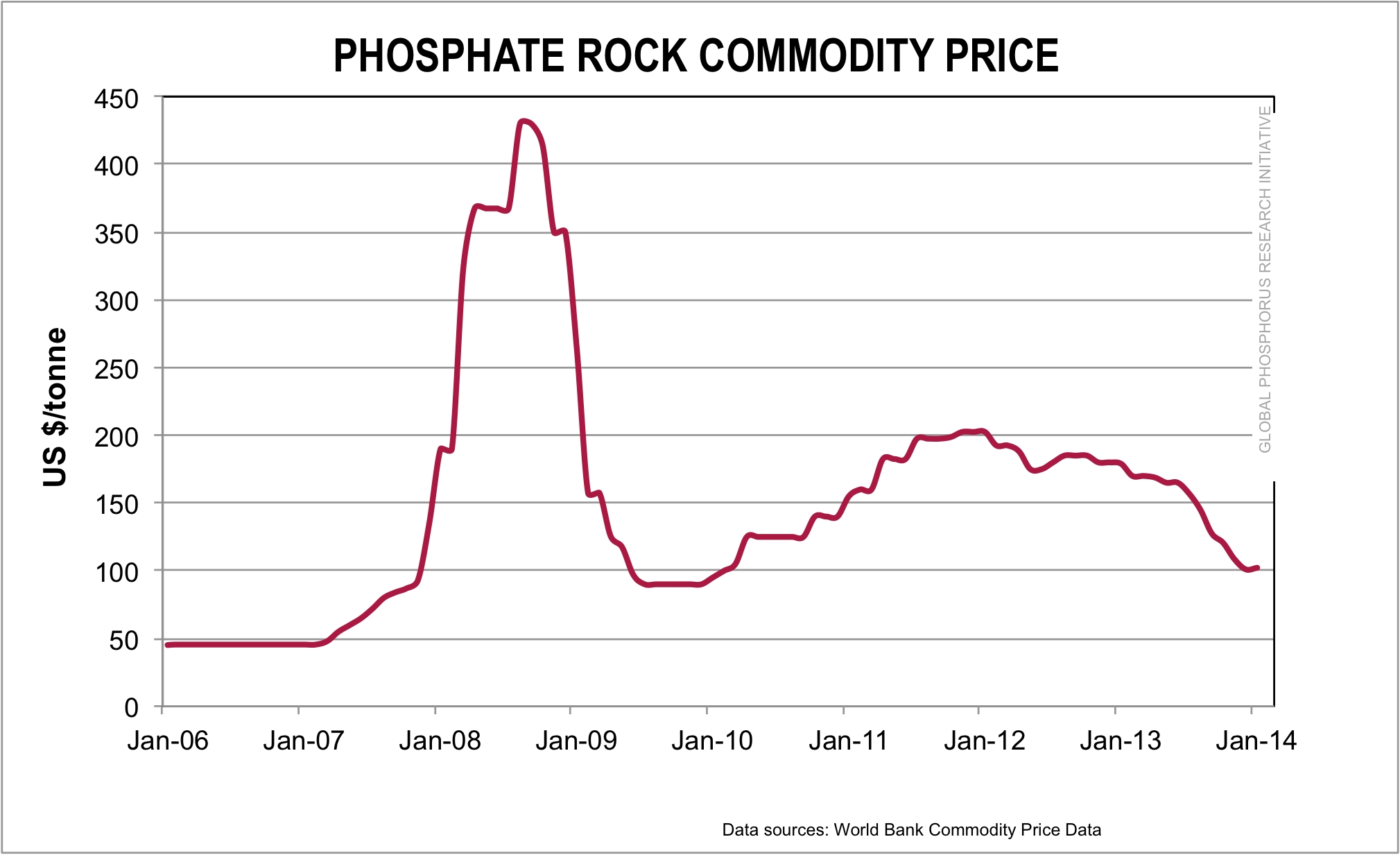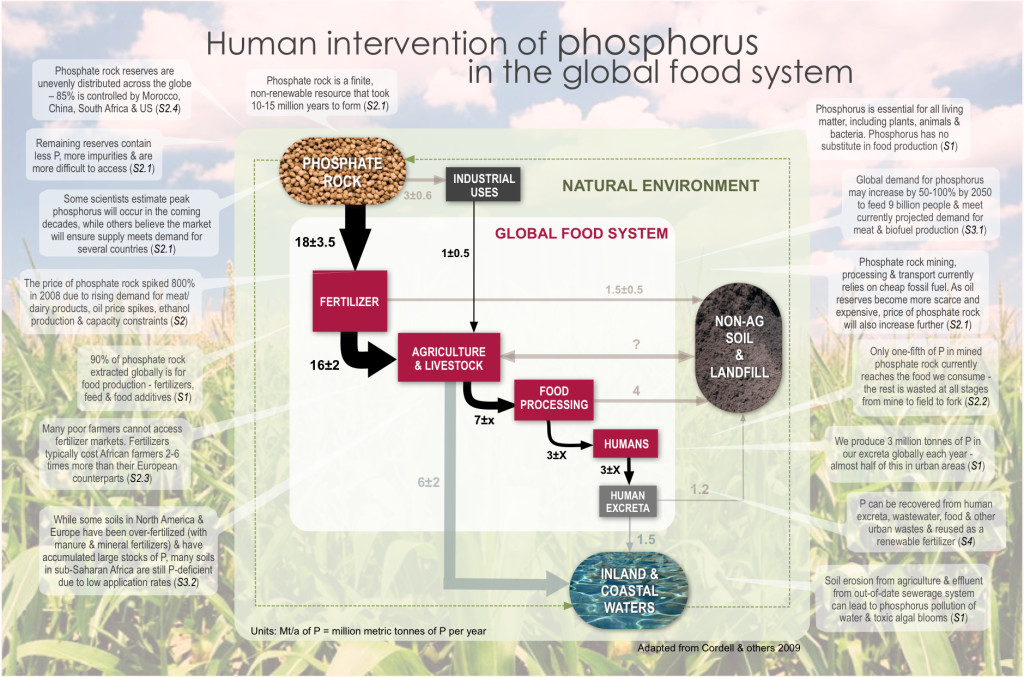The Phosphorus Challenge
“Due to the shocking lack of political debate around the threat of phosphorus scarcity to food security, there is an urgent need to take action now to ensure we will have sufficient phosphorus to feed humanity into the future”
– Professor Paul J Crutzen, 1995 Nobel Prize in Chemistry, GPRI Ambassador
Without phosphorus, we cannot produce food. As an essential nutrient in fertilisers for food production, phosphorus has no substitute. Phosphorus ensures soil fertility and high crop yields, supports farmer livelihoods and ultimately food security of the global population. Yet the world’s farmers depend on phosphorus sourced from finite phosphate rock, which are becoming more scarce, expensive and are concentrated in only a few countries: Morocco alone controls three-quarters of the world’s remaining high-quality phosphate reserves.
At the same time, inefficient use of phosphorus throughout the food systems is polluting our rivers and oceans causing toxic algal blooms.
 The 800% phosphate price spike of 2008 affected farmers from Australia to Ethiopia who could not access fertilizers, leading to farmer riots and suicides in some countries. Yet this crisis was also a wake up call, exposing the fragility of the world’s food system to even temporary disruption in phosphorus access.
The 800% phosphate price spike of 2008 affected farmers from Australia to Ethiopia who could not access fertilizers, leading to farmer riots and suicides in some countries. Yet this crisis was also a wake up call, exposing the fragility of the world’s food system to even temporary disruption in phosphorus access.
Global phosphorus scarcity is likely to threaten the world’s ability to produce food in the future if concerted efforts are not soon taken by policy makers, scientists, industry and the community. Read more
While some innovative strategies do exist, such as increasing phosphorus use efficiency in the agricultural & fertilizer sector and recovering nutrients in the sanitation sector, these sustainability initiatives are far from mainstream practices. Investing in the right sustainable strategies now boosts productivity in the short-term and is likely low-cost insurance for the future, to secure our food supply, support our farmers and protect our waters. Read more
Like oxygen or carbon, phosphorus is critical to growing crops – it can’t be commoditized. Yet no public institution is taking responsibility for governing long-term availability and accessibility of our phosphorus resources – not the UN, not national governments. The issue has fallen through the institutional cracks.
Effective and sustainable solutions will require multi-sector participation, including new partnerships between government, industry, research representatives from the fertilizer industry, agriculture and food processing industry, nutrition & health, sanitation sector, solid waste management industry, environmental protection agencies and sustainable systems researchers and practitioners.
Only when the full spectrum of environmental, geopolitical, economic, social and technical phosphorus challenges & risks are realised across the entire food system can a sustainable future be secured.
Source: Adapted from Cordell & White 2014, Life’s Bottleneck. Annual Review of Environment and Resources.
Further reading:
Peak Phosphorus: the sequel to Peak Oil
Cordell D, Turner, A & Chong, J (2015), The hidden cost of phosphate fertilizers: ¶ mapping multi-stakeholder supply chain risks and impacts from mine to fork, Global Change, Peace and Security, Special Issue.
Cordell, D. & White, S (2015), Tracking phosphorus security: indicators of phosphorus vulnerability in the global food system, Food Security, Springer, Feb 2015, Vol 7, Issue 2, p.337-350.
Cordell, D. & White, S (2014), Life’s bottleneck: sustaining the world’s phosphorus for a food secure future, Annual Review of Environment and Resources, Vol. 39:161-188.
Cordell, D. & White, S. Phosphorus security: global non-governance of a critical resource for food security, Edward Elgar Encyclopedia of Global Environmental Politics and Governance, (Eds) Pattberg, P & Fariborz Zelli, F. 2015. In press.
Cordell, D. & Neset, T-S, (2014) Phosphorus vulnerability: A qualitative framework for assessing the vulnerability of national and regional food systems to the multi-dimensional stressors of phosphorus scarcity, Global Environmental Change, 24 (2014) 108–122.

